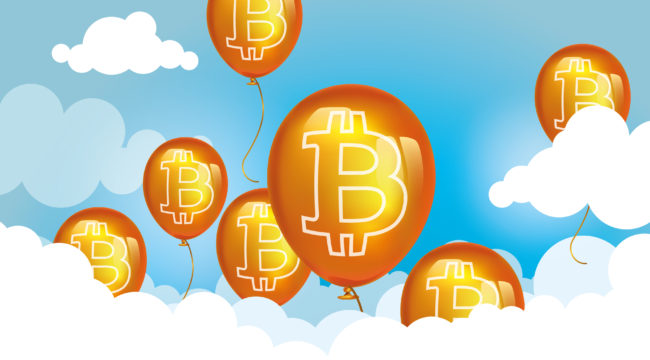The Invention of the Printing Press and the Rise of Bitcoin
In 1483, just as Johannes Gutenberg’s new moveable type printing press was spreading across Europe, Sultan Bayezid II of the Ottoman Empire issued a staunch decree banning the machine from his realm.
At the time the Ottoman Empire was the dominant superpower in the world, having conquered most of the Middle East, North Africa, and southeastern Europe.
But Bayezid was afraid of the new technology.
He and his advisors felt that the printing press would too easily allow information and new ideas to spread across his empire.
And they believed this would threaten their control and offend the religious establishment.
So not only did Bayezid ban the printing press, he imposed the death penalty upon anyone caught using one.
The Ottoman Empire remained so closed off to new ideas, in fact, that the only western book to be imported and translated for the next 3 centuries was a medical text on the treatment of syphilis.
Needless to say the Ottoman Empire did not remain the world’s dominant superpower for long.
It was during this period that Europe underwent radical growth.
Just a few centuries before, most of Europe was nothing more than a plague-infested backwater of irrelevant kingdoms. But by the mid-1600s, Europe had surged ahead, in part due to the rapid spread of knowledge made possible by the printing press.
It was the Internet of its time.
And scientists like Isaac Newton would never have been able to ‘stand on the shoulders of giants’ had it not been for that disruptive, revolutionary technology. Western civilization as a whole owes much of its prosperity to the printing press, which enabled the sharing of information and ideas.
And the example shows how embracing new technology can make an enormous difference in the development of a society.
Today most western governments probably still feel that they are embracers of technology who encourage innovation. But this is nothing more than a crude fantasy, especially when it comes to one of the most disruptive technologies of our modern time: cryptocurrency.
Cryptocurrency is today’s printing press — a truly game-changing technology that the ruling elite sees as a threat to their control.This is why there have been so many ridiculous rules and tax policies that disincentivize cryptocurrency ownership — the technology is too disruptive.
Banks have enjoyed unparalleled power and influence for eight centuries, going all the way back to the Medici rule in the early Italian renaissance. Bankers controlled the money, and were consequently able to control governments, laws, and even wars.
In the fight against Napoleon in the early 1800s, for example, the fate of the British war effort was not in the hands of the generals and admirals, but in the hands of the Rothschild banking family that financed them.
In the early 1900s, it was JP Morgan who engineered a revolution in Panama and imposed a puppet government so that his bank could finance the lucrative canal project. And just a decade ago the heads of the top Wall Street banks cajoled the entire U.S. government into a trillion-dollar taxpayer-funded bailout.
The only reason banks enjoy such immense power is because they control the money.
But if you think about it, banks are nothing more than middlemen, taking money from depositors and loaning it out to borrowers. In fact the old joke in banking was the famous 3-6-3 rule: pay 3% on deposits, loan money at 6%, be on the golf course by 3pm.
Cryptocurrency disrupts this absurd middleman monopoly.
Think about it: when you send money to someone, those funds move from your bank, to the central bank, to another bank, and then finally to the recipient’s account. This is the same way that money used to be transferred 800 years ago, which seems almost tragically anachronistic given that we have apps today to send funds directly to a recipient’s mobile phone or email address.
Who needs a middleman anymore?
Why should anyone borrow money from a bank when there are so many Peer-to-Peer and crowdfunding platforms available? Why pay exorbitant fees and commissions to exchange currency when there numerous websites that exchange money at almost no cost?
Banks as financial intermediaries are about as quaint as taxi dispatchers in the age of Uber.
Cryptocurrency and Blockchain technology are the final nails in the coffin. If that seems too esoteric, consider that your savings is already ‘digital currency.’ Banks don’t keep bricks of physical cash in their vaults; your bank balance is nothing more than an accounting entry in your bank’s electronic database.
It just happens to be 100% controlled by your bank.
As Jim Rickards reminded me some time ago, most currencies are digital, even the U.S. dollar.
The Federal Reserve’s estimate of U.S. dollar money supply is $12.1 trillion; yet only about 10% of that is physical cash in circulation. The rest — more than $10 trillion — is simply a series of entries in banks’ core system databases.
In other words, the money in your savings account isn’t piled up inside your bank’s vault. Far from it.
Your savings doesn’t really exist. It’s all just digits in an electronic account ledger. And yet we transact with these digital currency units all the time. Whenever you use a credit card or send a bank transfer, you’re using the digital form of your currency.
This means that the ‘money’ in your savings account isn’t really yours.You don’t actually have any savings. What you really have is a claim on your bank’s savings. Your account is just an entry in the liability column of their digital ledger.
When you make a deposit, you’re trading your money for a banker’s promise to repay you.
And there are countless regulations giving them the authority to break that promise. (If you want to test this premise, try withdrawing $25,000 just to see how your bank reacts.)
Moreover, banks can gamble your savings away on some idiotic investment fad, charge you ridiculous fees without your consent, and even freeze you out of your own account (‘for your own security’).
That’s the system that controls your wealth today. It’s almost entirely digital. And it’s run by unelected bureaucrats whose interests are not aligned with your own.
This is not a free system. And any rational person should consider parking at least a rainy day fund outside of this system.
Bitcoin is certainly one option.
No one controls it, which is a novel concept in an era when governments and central banks control everything from the value of your savings to what you can/cannot put in your own body.
Cryptocurrency de-centralizes this system. You become your own banker. No more middleman.
Cryptocurrency is about divorcing yourself from an anachronistic financial system that has never missed an opportunity to abuse you. And that makes it worth understanding.
This is especially true if you’re naturally skeptical of the idea or have already passed judgment on Bitcoin as a ‘scam’ without having learned about it first.
Cryptocurrency is the future of finance. And just as embracing new technology can be prosperous for societies, it can also be extremely prosperous for individuals.
Back in 2010, for example, the very first ‘real world’ Bitcoin transaction was conducted: 10,000 bitcoins, then worth about $30, traded for two Papa John’s pizzas.
Today that transaction would be worth some $23 million.
While those types of gains may never be repeated, lesser-known cryptocurrencies are being developed that could very well make early investors fortunes in the years ahead.
There’s plenty of risk and the ride won’t be smooth, but you’ll never turn $30 into $23 million by playing it safe.
Regards,
Simon Black
for The Daily Reckoning
Ed. note: If you feel like you’ve missed out on Bitcoin, we have good news…
There’s a whole new crop of cryptocurrencies coming out that could give everyday investors the opportunity to make fortunes in this exciting new market.
Within the next couple of days, we’ll show you how you can participate in these opportunities for potentially life-changing gains, so stay tuned.
This could be one of the few ways everyday investors can legally get rich in a hurry in today’s market.



Comments: